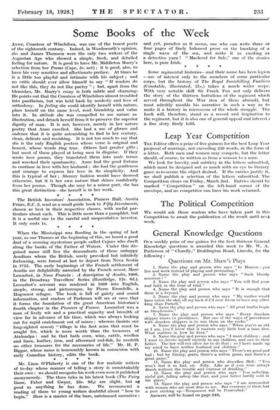When the Mississippi was flooding in the spring of last
year, as our Thames at the beginning of this, we heard a good deal of a seeming mysterious people called Cajans who dwelt along the banks of the Father of Waters. Under this dis- guised name still live the descendants of those unhappy Acadians whom the British, sorely provoked but infinitely forbearing, were forced at last to deport from Nova Scotia in 1755. The early beginnings of the French settlement of Acadia are delightfully narrated by the French avocat, Marc Lescarbot, in Nova Francia : A description of Acadia, 1606, in the Broadway Travellers' Series (Routledge, 12s. 6d.). Lescarbot's account was rendered in 1609 into English, simple, strong, and picturesque, by Pierre Erondelle, a Huguenot refugee. The book is full of gaiety and sound information, and readers of Parkman will see at once that it forms the foundation of the great American historian's fourth chapter in the Pioneers of France. Lescarbot was a man of lively wit and a practical sagacity and breadth of view far in advance of his time, which was always looking out for rapid enrichment out of mines ; whereas (insists our long-sighted avocat) " tillage is the first mine that must be sought for, which is more worth than the treasures of Atahualpa : and he that bath corn, wine, cattle, woollen and linen, leather, iron, and afterward cod-fish, he needeth no other treasures for the necessaries of life." Mr. H. P. Biggar, whose name is honourably known in connexion with early Canadian history, edits the book.






































 Previous page
Previous page